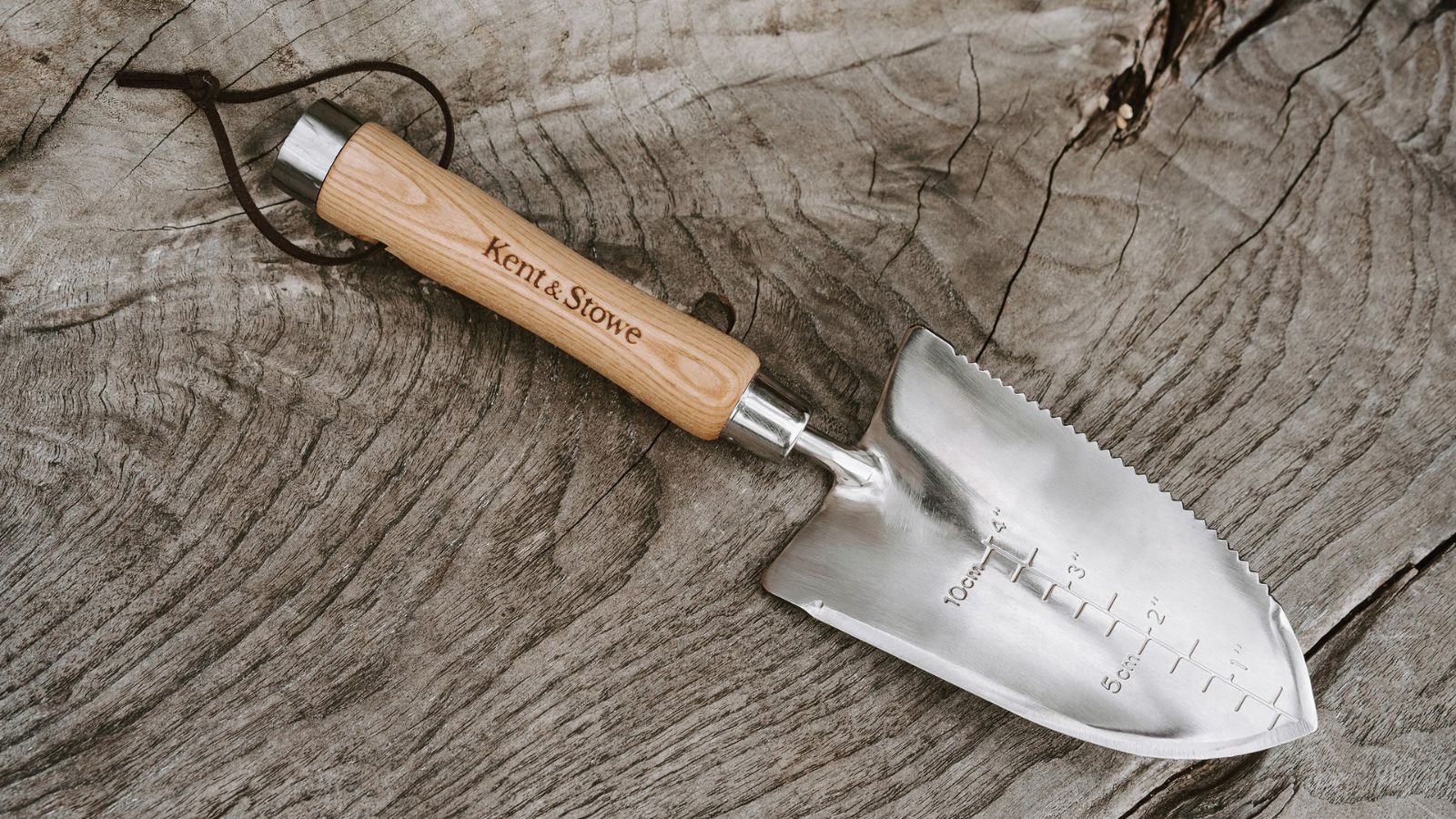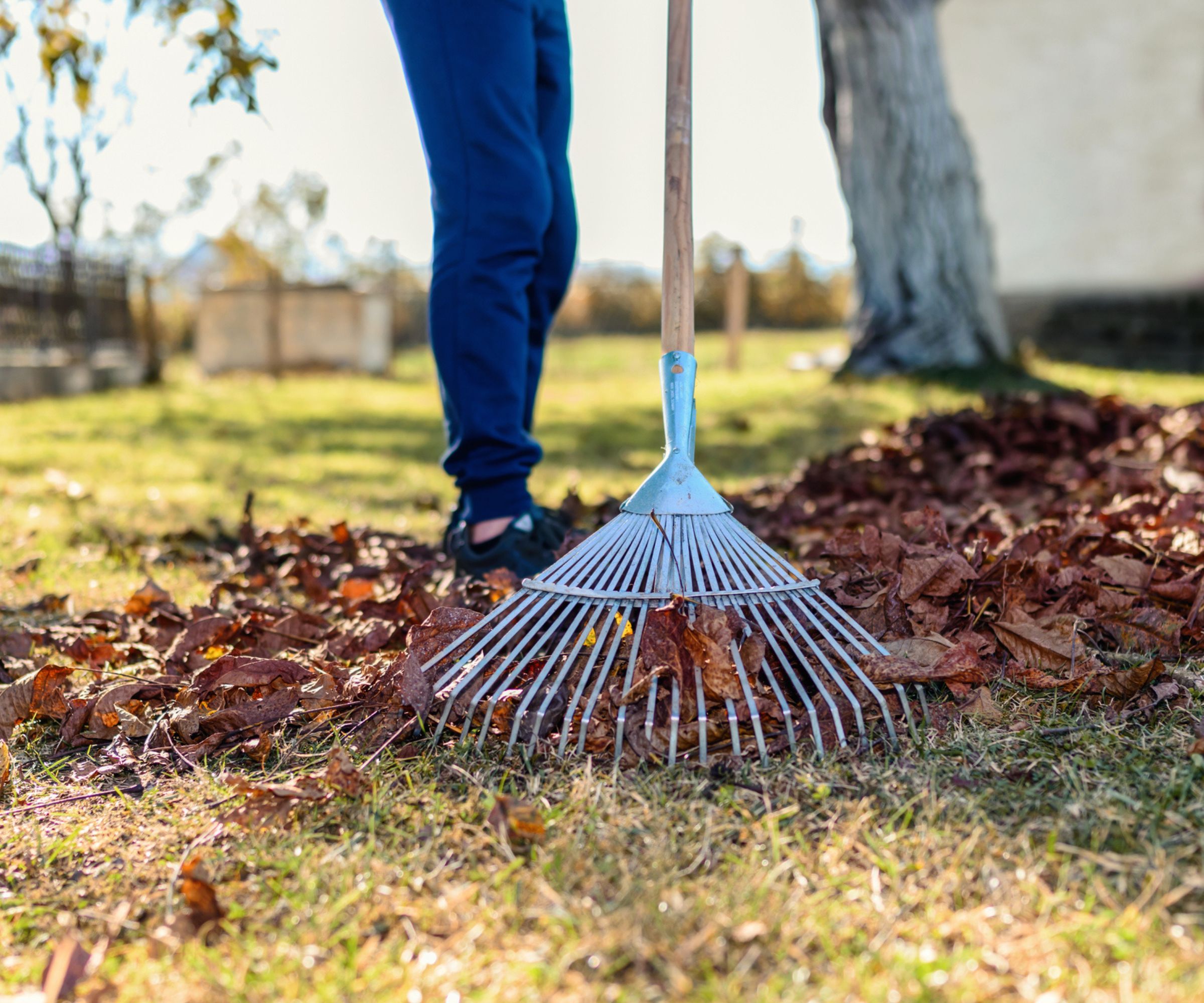
Plastic pollution is a huge issue on a global scale, but it could be harming your backyard. Tiny pieces of plastic can chip off your tools and lower the fertility of your soil. Plastic tools are also prone to breaking more easily, meaning greater repeat purchasing of gardening kit and more plastic waste in the trash.
This means even the best pruners and best hedge shears can contribute to pollution that not only harms the planet but lowers yields in your yard.
As a product tester, I've tried lots of different tools, including dozens of plastic-free, traditional wooden and metal ones. These are the best eco-friendly yard tools – all tested first-hand.
What's the issue with plastic tools?

Plastic tools have a couple of shortcomings. The most obvious issue is the long-term impact of plastic on the environment. Gardening expert Valeria Nyman says 'Plastic tools are like fast food for your garden - convenient but with hidden costs. While they don't directly harm the soil, their long-term presence in landfills does create environmental issues.'
On top of that, some studies, such as this from the Friei Universität in Berlin, show that microplastics chipped off from plastic tools can be detrimental to soil over time. Valeria adds that 'There's a growing body of evidence indicating that plastic pollution affects soil ecology. Microplastics in soil can reduce the ability to retain water and essential nutrients.'
This makes your soil less fertile, making it harder to grow your favorite plants, and if you grow food and vegetables, it may introduce microplastics to your produce.
It's a small impact, but if you want to avoid it entirely, you should use metal and wooden garden tools.
Best eco-friendly yard tools
Even after years of tests, this is the best trowel I've ever used. It's stout and sturdy but absolutely packed with extra features. It has a sharp and serrated edge for opening bags of soil and compost for slicing through roots. There's a handy depth gauge stamped into the blade so you can precisely plant seeds and bulbs, and a hammer on the wooden handle for hammering small stakes. The only drawback? Vegan gardeners might not like the leather strap.
The Felco No. 8 are very similar to the best pruners in the world, the Felco No.2. Like the No.2, every part can be replaced for life, so these are the only pruners you'll ever need to buy, and much more sustainable than plastic pruners that end up in landfill. Unlike the No.2, however, they don't have plastic grips and instead use leather covers for grip. On top of that, they have a non-stick coating and a split ring for carabiners or to hang them up in your tool shed. The drawback is that this will cost you an extra $30, and the leather grips won't work for vegans.
This unique trowel from DeWit will never break, making it one of the best eco-friendly yard tools out there. That's a big claim, but this heavy-duty trowel has been hammered out of two and a half pounds of bulldozer-quality boron steel. It's perfect for tackling rocky soil or big planting jobs. One drawback is the inevitable weight - it's more than twice as heavy as the other trowel above. The other is that the steel handle becomes uncomfortably cold when gardening in the winter.
Okatsune makes the 103 pruners, among the best pruners you can buy, and the 217 shears are also some of the best hedge shears in the world. These pruners are sharp and precise, and the white-and-red handles are easy to spot among dark leaves. The only issue is that these are expensive for shears, and if you have a lot of pruning to do, you might find the bare wood handles a little uncomfortable.
A short-handled spade like this is a great option when you're working in flowerbeds. It offers more leverage than a trowel, so it's perfect for working with heavier plants like shrubs.
Sneeboer's Royal Dutch Hoe became an instant classic when it was launched ten years ago. It has a unique blade that's much more effective than a standard push hoe, and a clever angled handle that reduces the strain on your back and lets you strike deeper into the soil.
Bulb planters make it easy to plant your bulbs for spring. They remove a perfect cone of soil so you can achieve perfect spacing between your bulbs, or plant them at different depths for lasagna gardening. Unlike most cheap bulb planters, this carbon steel and ash option from DeWit is completely plastic free.
Sneebooer's leaf rake is much tougher than other models out there. Unlike cheap, plastic rakes that break more easily, this will last for years without breaking. This robust but lightweight rake makes it easy to remove leaves and thatch from your lawn.
Niwaki's golden spade has been sought-after for years. Made from tubular steel, it's very strong but only weighs a couple of pounds, so it's great for long hours in the yard. Best of all, it's completely plastic-free.
FAQs
What are the drawbacks of wooden tools?
The big drawback of wooden tools is that bare wooden handles can rub on your hands can cause blisters. While wood is often studier than plastic, it's heavier, and if you leave your tools out in the rain by accident, the handle will start to rot.
Non-toxic appliances are becoming much more common amid growing concerns about microplastics. If you're worried about microplastics, we've tested all of the best non-toxic air fryers and non-toxic coffee makers to help you decide which is worth an investment.







